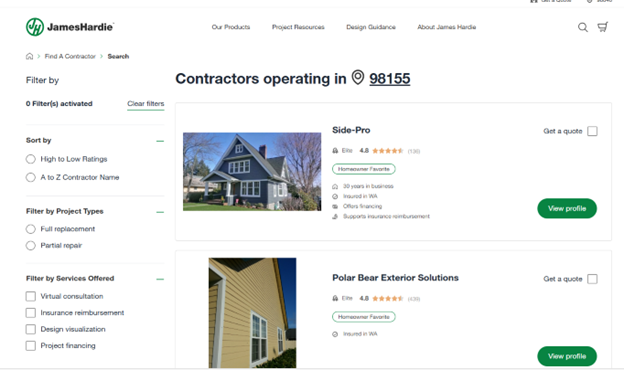In the home renovation industry, with the potential for accidents to occur every working day, insurance serves one main purpose: to protect everyone and everything. Reputable companies should have insurance for themselves, their employees, and most importantly: you, the homeowner.
There are a ton of different insurance types for all different types of businesses, so let us keep it simple for you and explain what to look out for and why.
Always Go With an Insured Contractor—or Potentially Pay in Bills
A customer shared with our president, David Homavand, that on the customer’s first roofing project (she came to us with her second) an employee from that roofing company had fallen.
It was worrying, but the customer shared that the roofer seemed fine and went home afterwards.
However, she started to receive medical bills in the mail. When checking the name on the paperwork, she found out that the bills were from the roofer she had just hired.
The customer was getting charged the medical bills because the roofing company did not have workers’ compensation. She could only continue to pay the bills of the roofer, since the accident technically happened on her property.
Had the customer chosen a contractor who was bonded and insured prior to the start of construction, she would have saved herself not only time and money, but a huge headache.
What is General Liability and Workers’ Comp Insurance?
That story should scare you. What went from an exciting home renovation project became a nightmare in the span of a day—and if you choose a non-insured contractor, that could easily be you.
Pay attention to these two types of insurances, as they’ll be most important to you as prospective customers:
- General liability insurance
- Workers’ compensation insurance
What is General Liability Insurance?
General liability Insurance protects a business from the financial cost of potential bodily injury and property damage.
If a homeowner hurts themselves around the job site, general liability insurance will help cover the medical bills.
It also protects your property in case the contractors accidentally damage something while working.
What if There’s No General Liability Insurance?
If the contractor you hire does not have general liability insurance, then any damage to your property or anything you own (including yourself) is not covered.
Costs for any medical emergencies or accidents would come out of your own pocket, as the company will not cover it.
It could also mean that the contractors are not an official business entity, as general liability insurance is required for most business-related paperwork.
What is Workers’ Comp Insurance?
Workers’ compensation insurance serves to protect the contractors in the event of any accidents or incidents while working.
It covers medical expenses, disability benefits, partial replacement of lost wages, or death benefits for employees in the case that they are injured or killed by an accident while working.
The difference between workers’ comp and general liability insurance is the party the policy is protecting. Always double check to make sure the contractor you choose has both.
What if There’s No Workers’ Comp Insurance?
Like the story at the beginning, workers’ compensation serves to protect the contractors while they’re at work—on your property. By selecting a company that has workers’ compensation, you protect yourself and your future financial security.
What Does Being Bonded Mean?
Being bonded ensures that the contractor is held to the integrity of the contract, ensuring that they withhold their side of the project.
Being bonded is an additional layer of security that functions as insurance, but specifically for the project itself. It allows homeowners to file claims with the third-party company that the contractors are bonded with in case the contractor doesn’t fulfill their obligations as per the contract.
Bonding is about the project fulfilment itself, which separates it from the other two types of insurance (general liability and workers’ compensation) and makes it integral.

Confirm Contractor Insurance Through Your Secretary of State Website
You do not want to be footing the bills of a contractor who slipped and fell, so ensure that the contractor you go with is licensed, bonded, insured, and has workers’ comp. Find this information through your state’s Department of Labor or Secretary of State with the verification tool.
This is what the Washington State Department of Labor & Industries Verification page looks like in July 2025. For other areas, try looking up “[STATE NAME] business verification tool”.
The website will then pull up all the details of their insurance and bonds, as well as which companies they are insured through—which helps when conducting your own research.
Avoid Starting Your Project With an Uninsured Contractor
Insurance is one of the most important factors to consider when hiring a contractor. Not only does it protect them and their business—it protects you as well, across all fronts.
By doing quick research with the databases provided within this post, you can prevent and protect yourself from any accidents on any home improvement project.
For more tips on what to look out for, read “What are Potential Hidden Costs Within Home Improvement Contracts?” to learn more about more contractor red flags across all home improvement projects.
If you’re ready to start your roofing or siding project with true peace of mind, fill out the form right next to this blogpost or give us a call for your free estimate!
Subscribe to Pacific Exteriors LLC's Blog






Comments